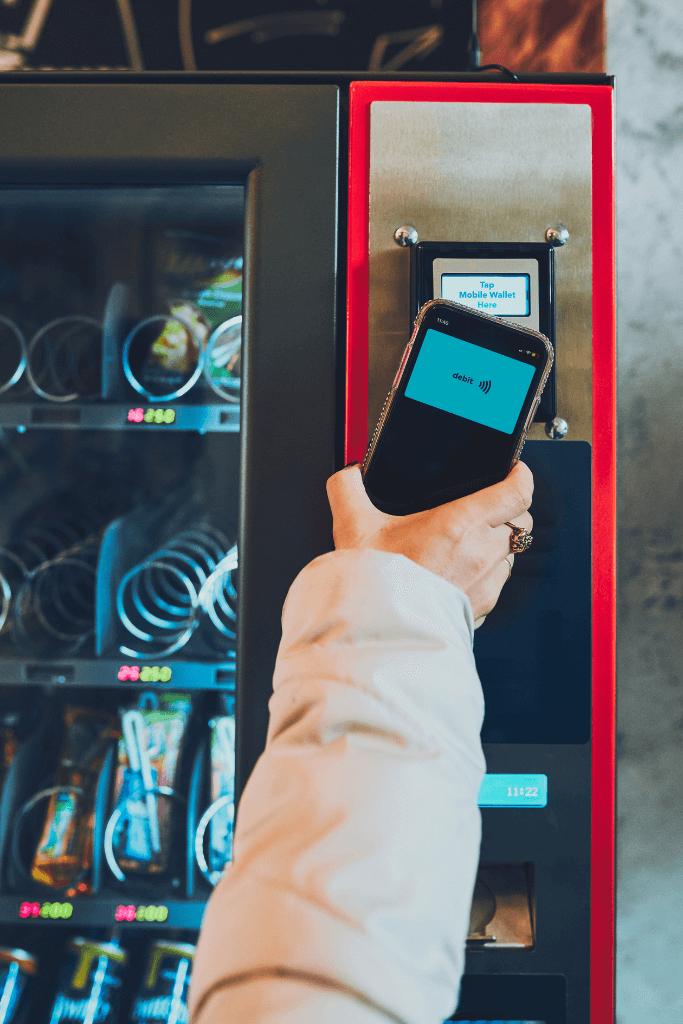Daniel COHEN TURNER
Vending Machine Insider: Transformed
Your go-to resource for all things vending machines – from guides to tutorials, we’ve got you covered.
10 Reasons to Own a Vending Machine
- Passive Income Stream:
- Vending machines operate 24/7, providing a consistent source of passive income without constant oversight.
- Business Flexibility:
- Ideal for entrepreneurs seeking flexible business opportunities with relatively low time commitments.
- Diverse Product Offerings:
- Vending machines enable the sale of a variety of products, from snacks and beverages to healthier options.
- Expandable Business Model:
- A scalable business model allows for the addition of more machines as the business grows, increasing revenue potential.
- High-Traffic Locations:
- Capitalize on high-footfall areas to maximize sales and profit potential.

- Reduced Labor Costs:
- Minimize labor expenses compared to traditional retail businesses, as vending machines require less staffing.
- Convenience for Customers:
- Offers convenient access to snacks and drinks in locations where traditional stores may be limited.
- Cashless Transactions:
- Supports cashless transactions, aligning with modern consumer preferences and boosting sales.
- Low Operating Costs:
- Vending machines entail lower operating costs than brick-and-mortar businesses, with reduced overhead and inventory expenses.
- Diversification of Income:
- Provides a means to diversify income streams for entrepreneurs with existing businesses or investments.
Start a Vending machine business: Step-by-Step
- Research and Planning:
- Conduct market research to identify profitable locations and products.
- Determine the type of vending machine (snacks, beverages, healthy options, etc.) based on your target audience.
- Create a Business Plan:
- Outline your business goals, target market, and financial projections.
- Include details about the number and type of vending machines you plan to operate.
- Legal Requirements:
- Check local regulations and obtain necessary permits and licenses.
- Register your business and ensure compliance with health and safety standards.
- Choose a Niche and Products:
- Select a niche or specific market segment based on your research.
- Choose products that cater to the preferences and demands of your target audience.
- Find Profitable Locations:
- Identify high-traffic locations with potential customers.
- Negotiate agreements with property owners or managers for vending machine placement.
- Secure Funding:
- Determine the initial investment required for machines, inventory, and other startup costs.
- Explore financing options, such as loans or partnerships.
- Purchase Vending Machines:
- Research and purchase vending machines that suit your chosen niche.
- Consider factors like size, capacity, payment options, and technology features.
- Stock Inventory:
- Establish relationships with suppliers to ensure a steady inventory.
- Regularly monitor product popularity and adjust stock accordingly.
- Install and Set Up Machines:
- Install machines in chosen locations, ensuring they are easily accessible and visible.
- Configure pricing, payment options, and any digital features.
- Implement Marketing Strategies:
- Develop marketing materials to attract customers to your machines.
- Consider promotions, discounts, or loyalty programs to increase sales.
Vending machine Regulations
Vending machine laws in the United States vary at the federal, state, and local levels, covering aspects such as health and safety, business licensing, and product regulations. While federal laws may provide general guidelines, individual states and municipalities often have their own specific requirements. Here are some general considerations:
50 USA State Laws
Each of the 50 U.S. states in a single response, as the laws can vary widely and are subject to change. Each state has its own regulatory framework covering aspects such as health and safety, business licensing, and product restrictions.
For accurate and up-to-date information on vending machine laws in a specific state, it is recommended to consult the official state government websites, local health departments, or legal professionals familiar with the relevant regulations in that particular jurisdiction.
General Rules
Apply for a Vending Machine License
Applying for a vending machine license involves several steps, and the process may vary depending on your location.
30000+ Happy Readers
10+ years of experience!
5+ Years Since Founded
Navigating the Vending Permit Process
Navigate local regulations seamlessly, ensuring compliance, and secure the necessary authorization to operate confidently. Elevate your vending success – obtain your permit effortlessly with our expert guidance.


+ Free Bonus TIPS
1. Customize your vending machine offerings based on local preferences and trends.
2. Keep an ear to the ground and adapt the product selection to match the unique tastes of the mall’s visitors.
Set-Up Vending Machine in Mall
To place a vending machine in a mall, follow these general steps:
Our Reviews
Explore firsthand experiences! Check out our reviews and see if it fits your needs!
6 Best Coffee Vending Machine
Kooler Ice Vending Machine
Note: Individual experiences may vary
Popular questions
Your Ultimate FAQ Guide to Seamless Vending Experiences!

